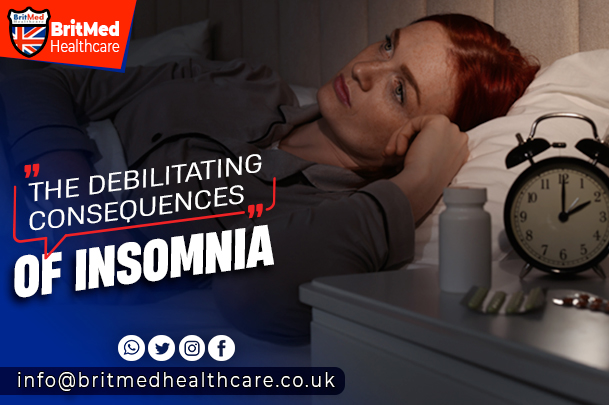The Debilitating Consequences of Insomnia: A Growing Epidemic in the UK
Insomnia, a condition characterized by difficulty falling asleep or staying asleep, has become a pervasive issue affecting millions of individuals across the United Kingdom. This affliction not only impairs the quality of life but also has significant economic and social implications. In this article, we will delve into the causes, symptoms, and consequences of insomnia, as well as explore the available treatment options and potential remedies.
Prevalence of Insomnia in the UK
According to a recent survey conducted by the National Sleep Foundation, approximately 25% of the British population experiences symptoms of insomnia. This translates to a staggering 16 million people who struggle to get a good night’s sleep, resulting in fatigue, irritability, and decreased productivity. The prevalence of insomnia is particularly high among young adults, with 30% of individuals aged 18-24 reporting difficulties sleeping.
Causes and Risk Factors
Insomnia can be attributed to a multitude of factors, including:
- Stress and anxiety: The pressures of modern life, coupled with financial insecurity and relationship issues, can lead to elevated stress levels and anxiety.
- Poor sleep habits: Irregular sleep schedules, excessive caffeine consumption, and exposure to electronic screens before bedtime can disrupt sleep patterns.
- Physical health issues: Chronic pain, respiratory problems, and gastrointestinal disorders can all contribute to insomnia.
- Medications: Certain prescription medications, such as those used to treat depression, high blood pressure, and allergies, can interfere with sleep.
- Lifestyle factors: Working night shifts, traveling across time zones, and engaging in stimulating activities before bedtime can also lead to insomnia.
Symptoms of Insomnia
The symptoms of insomnia can be broadly categorized into two types:
- Primary insomnia: Difficulty falling asleep or staying asleep despite adequate sleep opportunities.
- Secondary insomnia: Insomnia caused by underlying medical conditions or other factors.
Common symptoms of insomnia include:
Difficulty falling asleep
Waking up frequently during the night
Waking up too early
Difficulty returning to sleep after waking up
Fatigue and daytime sleepiness
Irritability and mood disturbances
Consequences of Insomnia
The far-reaching consequences of insomnia extend beyond the individual’s personal well-being, impacting relationships, work performance, and overall quality of life. Some of the most significant consequences include:
- Reduced productivity: Insomnia can lead to decreased job performance, absenteeism, and reduced motivation.
- Mental health concerns: Insomnia can exacerbate symptoms of depression, anxiety, and other mental health issues.
- Social isolation: Individuals struggling with insomnia may withdraw from social interactions due to feelings of fatigue and low motivation.
- Increased risk of accidents: Drowsy driving and workplace accidents are common consequences of untreated insomnia.
Treatment Options
Fortunately, there are several treatment options available for individuals suffering from insomnia:
- Cognitive-behavioral therapy for insomnia (CBT-I): A non-pharmacological approach that helps individuals identify and change negative sleep habits.
- Relaxation techniques: Techniques such as progressive muscle relaxation, deep breathing exercises, and meditation can help reduce stress and anxiety.
- Sleep hygiene practices: Establishing a consistent sleep schedule, creating a relaxing sleep environment, and avoiding stimulating activities before bedtime can improve sleep quality.
- Medications: In some cases, medications such as benzodiazepines or non-benzodiazepines may be prescribed to help individuals fall asleep or stay asleep.
Conclusion
Insomnia is a complex issue that affects millions of individuals across the UK. By understanding the causes, symptoms, and consequences of insomnia, we can better address this growing epidemic. While there are various treatment options available, it is essential to recognize that insomnia is not a normal part of aging or a trivial issue that can be ignored. Rather, it is a serious condition that requires attention, compassion, and support from healthcare professionals, employers, and society at large. By working together, we can reduce the prevalence of insomnia and promote better sleep for all individuals in the UK.
References:
https://my.clevelandclinic.org/health/diseases/12119-insomnia
https://www.sleepfoundation.org/insomnia
https://www.ncbi.nlm.nih.gov/pmc/articles/PMC1978319/
Websites:
Britmed Healthcare: https://britmedhealthcare.co.uk/
Nightingale Hospital: https://www.nightingalehospital.co.uk/
You can also book on Top Doctors UK Contact us on WhatsApp 08009708017
Top Doctors: https://www.topdoctors.co.uk/doctor/ahmed-el-missiry




